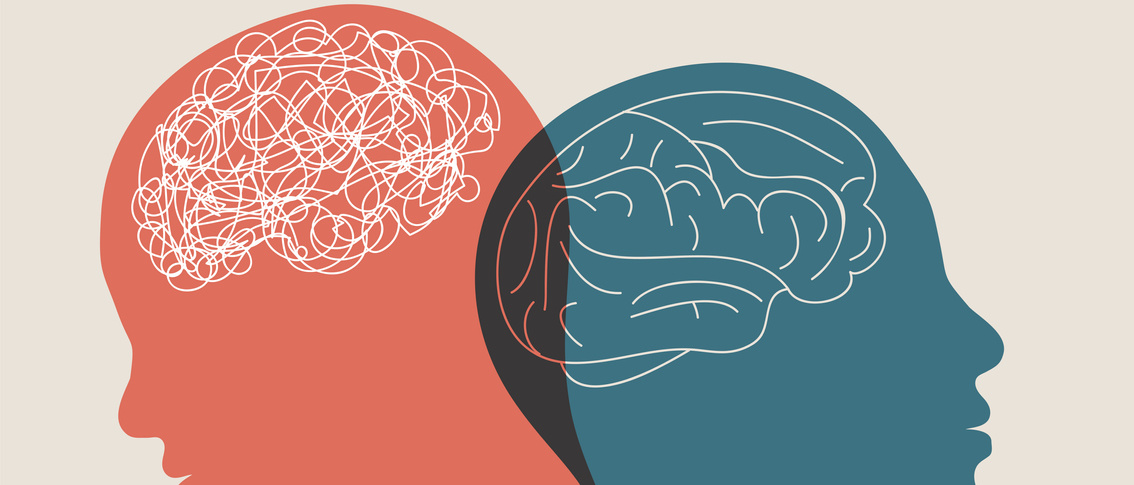Dr. Soumiya Mudgal2023-05-12T08:24:25+00:00
Psychosis is a mental health condition characterized by a loss of contact with reality. It can manifest as hallucinations, delusions, disorganized thinking, and abnormal behavior. While psychosis is often associated with schizophrenia, it can also occur as a result of other mental health conditions, substance abuse, or physical illness.
Causes of Psychosis
The causes of psychosis are complex and multifaceted. Genetics can play a role, as certain genes have been linked to an increased risk of developing psychosis. However, genetics alone are not enough to cause the condition. Other factors that can contribute to psychosis include:
-
- Substance abuse: Certain drugs, such as cocaine, amphetamines, and hallucinogens, can trigger psychosis.
-
- Brain injury or infection: Traumatic brain injury, brain tumors, and infections such as encephalitis can all lead to psychosis.
-
- Mental health conditions: Psychosis is a common symptom of schizophrenia, bipolar disorder, and severe depression.
-
- Sleep deprivation: A lack of sleep can cause psychosis in some individuals.
-
- Stress: High levels of stress can trigger psychosis in some individuals.
Symptoms of Psychosis
The symptoms of psychosis can vary depending on the underlying cause of the condition. However, some common symptoms of psychosis include:
-
- Hallucinations: Seeing, hearing, feeling, or smelling things that are not actually there.
-
- Delusions: Holding beliefs that are not based in reality, such as believing that one is being persecuted or that they have superhuman powers.
-
- Disorganized thinking: Thoughts and speech that are jumbled or difficult to follow.
-
- Abnormal behavior: Behaviors that are unusual or out of character, such as talking to oneself or acting inappropriately in public.
-
- Lack of motivation: A decreased interest in daily activities or personal hygiene.
Precautions
There are several precautions that individuals with psychosis should take to manage their symptoms and reduce the risk of relapse. These include:
-
- Taking medication as prescribed: It is important to take medication as prescribed by a doctor, even if symptoms improve.
-
- Avoiding drugs and alcohol: Substance abuse can trigger psychosis and interfere with the effectiveness of medication.
-
- Managing stress: High levels of stress can trigger psychosis, so it is important to develop coping strategies to manage stress.
-
- Getting enough sleep: A lack of sleep can trigger psychosis, so it is important to prioritize sleep and establish a consistent sleep schedule.
-
- Seeking support: Support from family, friends, and mental health professionals can be helpful in managing symptoms and reducing the risk of relapse.
Best Possible Treatment for Psychosis
The best possible treatment for psychosis depends on the underlying cause of the condition. In many cases, a combination of medication and therapy can be effective in treating psychosis.
Medication
Antipsychotic medication is the primary treatment for psychosis. These medications can help reduce hallucinations, delusions, and other symptoms of psychosis. However, antipsychotic medication can have side effects, so it is important to work closely with a doctor to find the right medication and dosage.
Therapy
Psychotherapy can be effective in treating psychosis, particularly in combination with medication. Cognitive-behavioral therapy (CBT) can help individuals learn coping skills and manage symptoms of psychosis. Family therapy can also be beneficial in improving communication and reducing stress in the home environment.
Hospitalization
In some cases, hospitalization may be necessary to manage severe symptoms of psychosis. This can provide a safe environment where individuals can receive medication and therapy as needed.
Overall, the key to successful treatment of psychosis is early intervention and ongoing support. With the right treatment and support, individuals with psychosis can learn to manage their symptoms and achieve a better quality of life. It is important to work closely with a qualified mental health professional to develop a personalized treatment plan and to take steps to manage symptoms and reduce the risk of relapse.
Dr. Soumiya Mudgal Provides the Best Psychosis Treatment
If you or someone you know is experiencing symptoms of psychosis, it is important to seek professional help from a qualified psychiatrist doctor. Dr. Soumiya Mudgal is one of the best psychiatrist doctors in Delhi, providing expert care and treatment for individuals with mental health conditions. With extensive experience and a passion for helping her patients, Dr. Mudgal offers the best possible treatment for psychosis with the highest success rate.
She uses a patient-centered approach, working closely with each individual to understand their unique needs and develop a personalized treatment plan. As a leading Psychiatrist Doctor For Psychosis in Delhi, Dr. Mudgal has helped numerous patients overcome their symptoms and achieve better mental health outcomes. She is committed to staying up-to-date with the latest research and treatment techniques and provides compassionate and supportive care to all of her patients.
Whether you are experiencing symptoms of psychosis for the first time or have been struggling with the condition for a while, Dr. Mudgal can provide the expert care and treatment you need to improve your quality of life. With a focus on evidence-based treatment and a commitment to helping each patient reach their full potential, she is one of the most trusted and respected psychiatrists in Delhi. If you or someone you know is in need of psychiatric care for psychosis or any other mental health condition, don’t hesitate to reach out to Dr. Soumiya Mudgal. With her expertise and compassionate care, she can help you overcome your symptoms and achieve a better quality of life.
Treatment You May Also Like:
> Schizophrenia Treatment in Delhi
> Depression Treatment in Delhi
> Mood Disorder Treatment in Delhi
> Sleep Disorder Treatment in Delhi
Clinic Locations:
> Psychiatrist Doctor in Safdarjung
> Psychiatrist Doctor in Malviya Nagar
> Psychiatrist Doctor in Hauz Khas


Leave a Reply